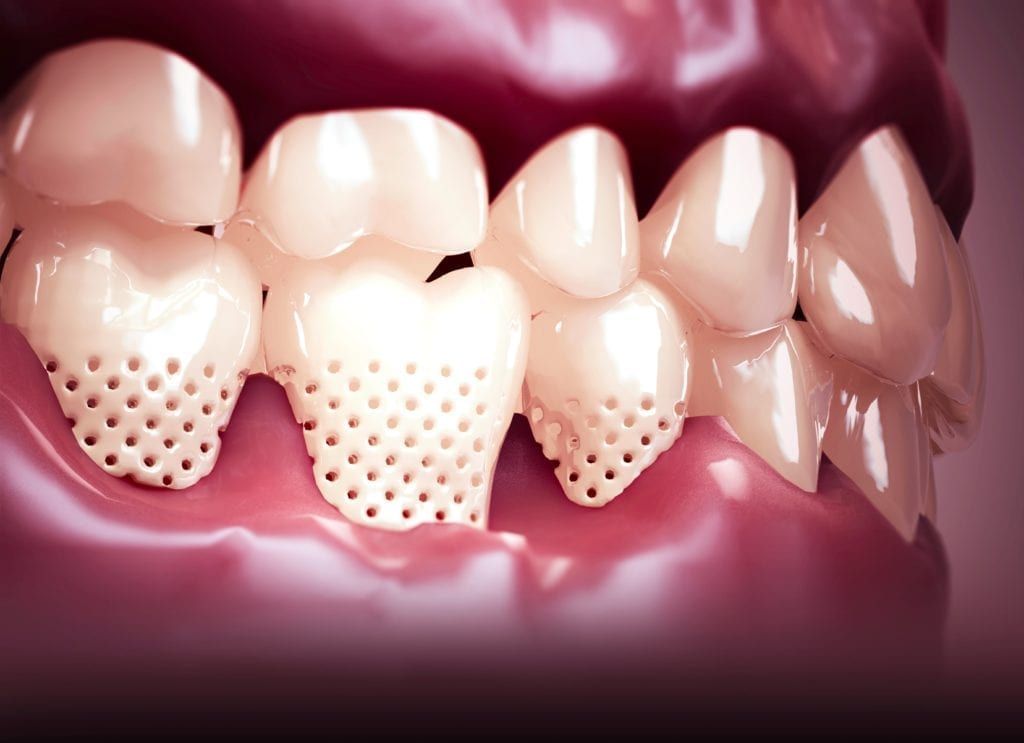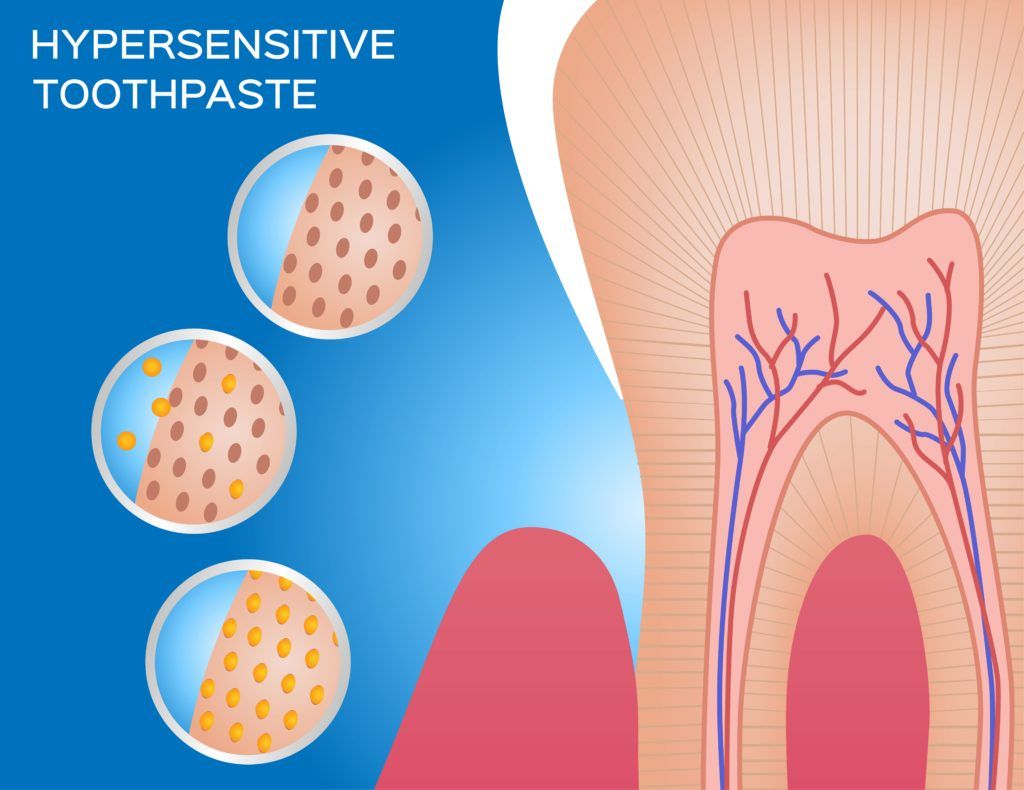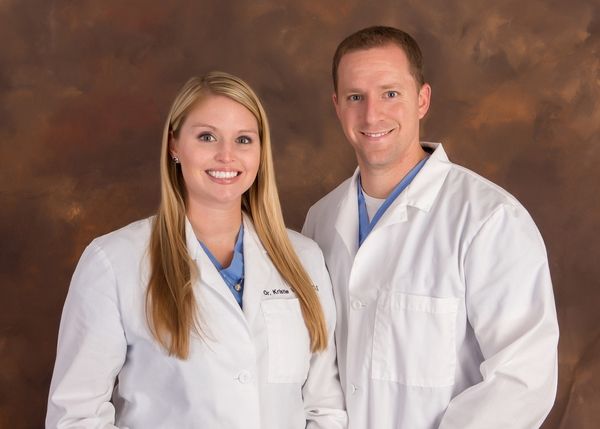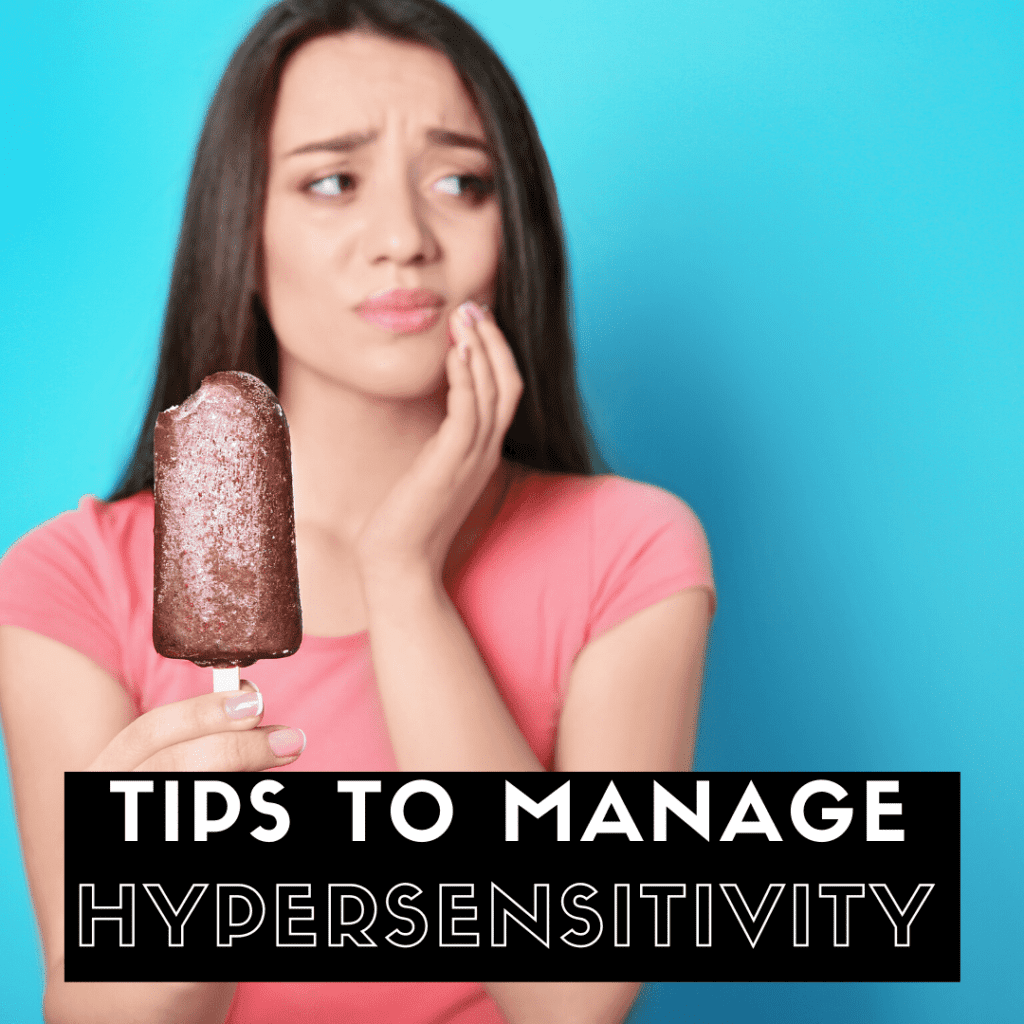As the summer heat looms over us, many people beat the heat by indulging in an assortment of cold summer treats. Unfortunately for some people with sensitive teeth, cold summer treats are not as refreshing. Instead, eating cold foods or drinking cold beverages can cause a sudden, deep tooth pain known as tooth sensitivity.

Tooth sensitivity occurs when hot, cold, or sweet stimuli are able to enter the tooth and irritate the nerve. There are different things that can cause tooth sensitivity such as cavities, gum recession, pulp infections, a cracked tooth, or a damaged dental restoration. In cases where a specific cause of tooth sensitivity can be diagnosed, restorative dental treatments can usually be used to resolve both the condition causing the sensitivity, as well as the sensitivity itself.
However, some cases of tooth sensitivity are not caused by a certain condition and are simply the result of worn enamel. Even though the outermost enamel layer is extremely strong, it can still be worn down over time from biting and chewing, teeth grinding, eating acidic foods, or brushing too hard. When the enamel wears down, this exposes the underlying dentin layer, which is porous and contains multiple channels that lead to the pulp layer. Since the pulp layer contains the tooth nerve, this ultimately causes the painful sensations known as tooth sensitivity.
One main way to prevent tooth sensitivity is to simply avoid eating or drinking anything that is hot, cold, or sweet. Unfortunately, this is not an ideal method to manage tooth sensitivity and you shouldn’t have to sacrifice your favorite foods and beverages. When speaking with your dentist about how to manage tooth sensitivity, they may recommend the following:
Desensitizers
There are various desensitizers that can be applied topically to the surface of your teeth, such as oxalate, Gluma, and fluoride varnish. Fluoride varnish is the commonly used desensitizer and it is often applied after having a preventative teeth cleaning. In order to work properly, however, these substances need to be reapplied every so often. Therefore, your dentist may recommend more frequent appointments for fluoride treatments or they may prescribe a desensitizer for at home use.
Sensitivity Toothpaste

In between your dental appointments, your dentist may also recommend using over the counter sensitivity toothpastes. This special type of toothpaste is formulated for people with sensitive teeth and helps to alleviate sensitivity. For starters, sensitivity toothpaste is free from substances that can irritate the teeth, such as sodium lauryl sulfate (SLS). Sensitivity toothpastes also contain additional ingredients that help to fill in the many dentin channels to prevent stimuli from reaching the nerve. Some common ingredients used to decrease sensitivity are potassium nitrate, strontium chloride, and stannous fluoride. Although there are various over the counter sensitivity toothpastes, there are also stronger prescription toothpastes your dentist may recommend.
Cervical Restorations
In addition to enamel wear, another common cause of tooth sensitivity is gum recession that leads to exposed dentin on the tooth roots. To manage sensitivity caused by exposed tooth roots or enamel erosion along the gum line, cervical restorations can be used. Cervical restorations are placed on the tooth along the gum line to act as a protective barrier between the dentin and external stimuli. Cervical restorations consist of bonding composite resin to the tooth surface as a way of building up a protective layer.

Dr. Chris Vinson and Dr. Kristie Vinson attended the College of Dentistry at The University of Oklahoma. Dr. Chris Vinson has earned a fellowship from the Misch International Implant Institute and a fellowship in International Congress of Oral Implantology. He is also certified to administer Oral and IV sedation to his patients through The Montefiore College of Medicine in New York and is Teeth-Express and Invisalign certified. Dr. Kristie Vinson is trained in sedation dentistry, Botox, and dermal fillers. She received a Fellowship from the Misch International Implant Institute and the Fellowship in International Congress of Oral Implantology. She is also Teeth-Express and Invisalign Certified.




